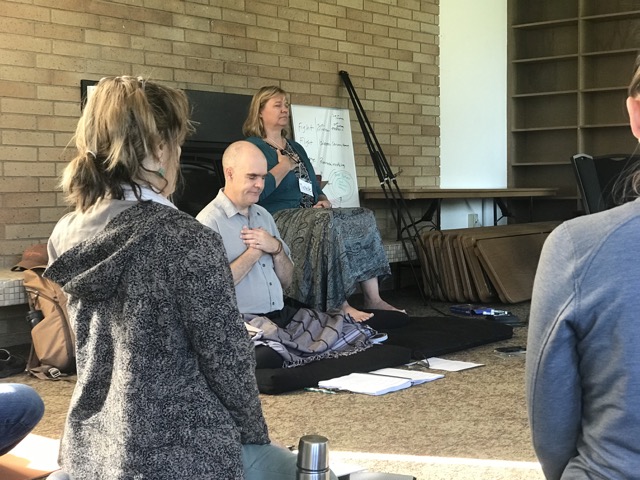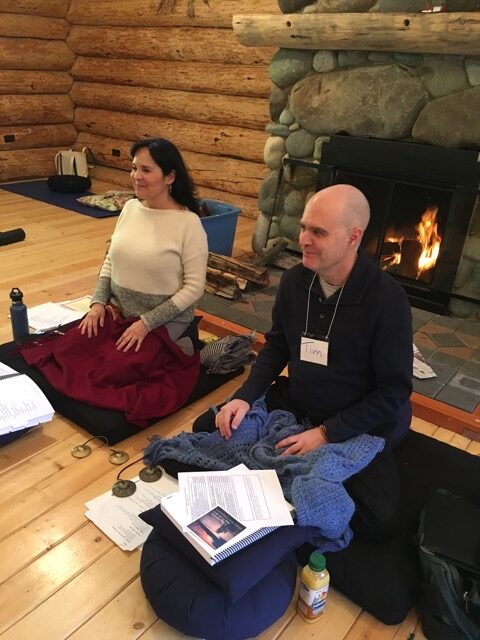Programs
Explore our mindfulness and compassion programs
Search | Drop-In | Living | MBSR | MSC | Healthcare | Retreats | Continuing Education | Teacher Training | Going Deeper | Printable Schedule
Upcoming Programs Matching Your Criteria

Learning to Be on Your Own Side: An Introduction to Self-Compassion

Mindfulness-Based Stress Reduction

Mindfulness-Based Stress Reduction
You Are Welcome Here
Everyone is welcome at Mindfulness Northwest, regardless of race, religion, age, ability, gender expression, who you love, what you believe -- everyone. We at Mindfulness NW work hard to make our spaces safe for all, and we thank you for joining us with that same intention.
Free, Drop-In, and Introductory PROGRAMS

Learning to Be on Your Own Side: An Introduction to Self-Compassion
Drop-In Programs
Want to jumpstart your practice? Looking for community and teacher support for maintaining a practice? New to Mindfulness Northwest and don’t know where to start? Try one of our Drop-In programs — online!
Weekly live online practice support is available! Join our teachers Carolyn McCarthy for Sunday Sit every Sunday evening or Tim Burnett for Midday Mindfulness every Wednesday at noon. These programs include teacher-led guided practice in community. A
All Drop-Ins are and Introductory Programs are offered free or by donation: simply register and we’ll send you the Zoom link. We look forward to seeing you!
You are making an enormous contribution to the community’s well-being. Your willingness to offer online, drop-in sessions is huge. I think I will make an exception to never using caps and repeat: HUGE.
Mindful Living

Breathe Easy: Meeting Anxiety with Mindfulness
Mindful Living Programs
Bring mindfulness to all areas of life. Rotating workshops and short retreats include mindful communication, eating, parenting, gratitude, forgiveness, and more. You’ll get hands-on experience, explore how mindfulness can work in your life, and come away with simple tools to use at work and home.
Explore mindful living in a warm, supportive community with skilled teacher support!
Kind and thoughtful presenters. Useful practices. Calming and effective.
Provides good intro to focusing and being present. The instructor is very comforting and efficiently uses our time.
Mindfulness-Based Stress Reduction (MBSR)

Mindfulness-Based Stress Reduction

Mindfulness-Based Stress Reduction
Mindfulness-Based Stress Reduction
The gold standard! Learn to be more present in your life and more resilient under stress.
Mindfulness-Based Stress Reduction is available every quarter as an 8-week course online and in person. Or try one of our Introduction to Mindfulness classes to learn more. Periodically we also offer MBSR as a 5-day residential training.
This hands-on, evidence-based course was developed by Jon Kabat-Zinn at the University of Massachusetts Medical School in 1979.
Curious about what it’s like taking MBSR? Learn more here and consider watching the five-minute message from Executive Director Tim Burnett under Is an 8-Week Class Right For You? below.
Not only did I learn mindfulness practices and techniques that I could use for my own benefit, but I was able to share what I learned with my clients during counseling sessions. An added benefit was the camaraderie and community spirit that was experienced amongst fellow mindfulness students, even within a virtual classroom environment.
Mindful Self-Compassion (MSC)

Learning to Be on Your Own Side: An Introduction to Self-Compassion

Self-Compassion Training for Healthcare Communities
MIndful Self-Compassion
Learn to befriend yourself, especially when things are tough. This nourishing evidence-based course combines the skills of mindfulness and self-compassion, providing a powerful tool for emotional resilience. We offer MSC as an 8-week course online and in person every quarter, and periodically as a 5-day residential course. Or our 3-hour Introduction to Self-Compassion will give you a taste.
Curious about what it’s like taking MSC? Learn more here and consider watching the five-minute message from Executive Director Tim Burnett under Is an 8-Week Class Right For You? below.
I look forward to the online MSC class each week. You have such an amazing way of holding space and guiding us through these practices that I feel like I’m on a mini-retreat during class.
MINDFULNESS For Healthcare Professionals

Self-Compassion Training for Healthcare Communities
Mindfulness for Healthcare
Since 2011, Mindfulness Northwest has been working with physicians and other medical professionals. We offer a variety of programs for healthcare, from 1-3 hour introductions to our 5-week Mindfulness for Healthcare Professionals course. All developed especially for busy healthcare workers.
Mindfulness for Healthcare Professionals is a powerful course on stress reduction and burnout prevention containing the core elements of the renowned Mindfulness-Based Stress Reduction (MBSR). Pre/post data shows significant reduction in factors leading to burnout.
Want to bring mindfulness to your workplace? Our clients have included Kaiser Permanente and the UW School of Medicine.
Contact us to find out how we can support your healthcare team.
I really appreciated that the course found ways to help busy doctors integrate mindfulness into their lives and practice WITHOUT taking more time out of our lives. I was more energetic, happy, and present for my family. And while my work days weren’t any shorter, being mindful helped me feel less resentful of my time at work.
Multi-Day Mindfulness Retreats & Trainings

Fierce Compassion: Womenʹs Retreat
Multi-Day Retreats & Trainings
Taking time away from our busy lives can give us the space to deeply connect with our experience, get acquainted with our true selves, see things differently, and reinvigorate mindfulness practice. Practicing with a group of people across several days can provide a unique sense of community and support that can last long after the retreat concludes.
Multi-day retreats & trainings also give us the chance to slow down, disconnect from technology, and reconnect with the natural cycles of the world. Join us for these multi-day deep dives into practice led by well-seasoned teachers.
We’ve developed partnerships with beautiful and accessible retreat centers in Western Washington where we offer two types of multi-day practice experiences:
RETREATS
At our retreats (online or in-person), you’ll be guided through sitting meditation, the body scan, walking meditation (indoors and out), gentle mindful movement, and contemplative practices like loving-kindness meditation. Multi-day in-person retreats are held largely in silence. Retreats are ideal for people with some mindfulness or meditation experience. For those newer to mindfulness we recommend starting with a class or a single day retreat.
RESIDENTIAL TRAININGS
At our Residential Trainings for Mindfulness-Based Stress Reduction and Mindful Self-Compassion, you’ll experience the full 8-week curriculum through a mix of teachings and practice in five days. The Trainings are appropriate to those who are brand new to mindfulness and are a great way for returning students to refresh and deepen previous learning.
The teachers are lovely, gentle, incredibly supportive, and clearly knowledgeable about mindfulness and how it can support us in our lives.
Single-Day Mindfulness Retreats

Rooted & Rested: A Day of Mindfulness and Self-Compassion

Step Back and Reset: A Day of Mindfulness
One-Day Retreats
Taking just a single day away from our busy lives can shift our reality and support greater calm, ease, and joy. Join us for a one-day deep dive into practice led by our highly experienced instructors. We’ve cultivated relationships with beautiful, quiet sites in Western Washington for in-person retreats and discovered how to offer quality at-home retreats live online.
At our Days of Mindfulness and Days of Self-Compassion, you’ll be guided through sitting meditation, the body scan, walking meditation, gentle mindful movement, and cultivation practices like loving-kindness meditation. Self-care and modifications to the practices are encouraged as needed. A generous break for lunch and individual practice is included in the schedule.
Retreats are ideal for people with some mindfulness or meditation experience. Very little introductory information about mindfulness is provided at these sessions. Rather, we will dive right in with guided practice. If you are totally new to meditation, a retreat may be a challenge; however, all are welcome. For some, “jumping in” is a great way to start!
We also have one-day retreats that focus on topical themes like Forgiveness, Gratitude, and Mindfulness for Couples. See the Mindful Living section for more on these innovative programs. Whether you’re brand new to mindfulness or looking to deepen your practice, our topical retreats offer new insights and stellar support.
Ready for a longer retreat? We also offer overnight multi-day retreats two to seven days long.
The teachers are lovely, gentle, incredibly supportive, and clearly knowledgeable about mindfulness and how it can support us in our lives.
Mindfulness Teacher Training
Becoming a Mindfulness Teacher
Our 2-year Mindfulness-Based Stress Reduction Teacher Training (MBSR-TT) program trains you to teach the gold standard 8-week MBSR course. MBSR is the most widely known and thoroughly researched mindfulness program. Learning how to teach MBSR also empowers you to create and lead shorter programs, presentations and workshops. Our personalized, hands-on, cohort-based, two-year program supports you every step of the way on the path to certification.
Mindfulness Northwest’s MBSR training provides an in-depth study of the course material, with ample time to discuss and dive into the material with senior teachers both in-person and in online group meetings. There are many opportunities to develop teaching skills with assistance from the senior teachers. The atmosphere is supportive, while also delivering important feedback.
I was fortunate enough to be able to participate in the MTTP program in 2020. Tim Burnett assembled a wonderful cohort of like-minded students and created a curriculum that was incredibly educational and inspiring. If you have any inclination towards deepening your understanding of mindfulness and being able to teach others, I highly recommend this program.
More About Our Programs
MORE ABOUT MINDFULNESS-BASED STRESS REDUCTION (MBSR)
Developed in 1979, Mindfulness-Based Stress Reduction (MBSR) is an 8-week course on mindfulness practice developed by Jon Kabat-Zinn at the University of Massachusetts Medical School.
Since then over 25,000 people have taken MBSR. It is considered the gold standard in mindfulness training: there are several other mindfulness-based classes and interventions, but MBSR is the oldest and most studied for improvements in health and well-being.
This interactive course helps you draw on your own inner resources to actively engage in caring for yourself. This can lead to finding greater balance, ease, and peace of mind.
RESEARCH EVIDENCE SUGGESTS MBSR IS HELPFUL FOR:
- immune system function
- reducing anxiety
- preventing relapse of depression
- reducing negative emotions
- responding to stress
- managing chronic pain
- enhancing compassion and altruism
- professionals: coping with stress, connecting with patients, and reducing burnout-inducing negative emotions and anxiety
- veterans and other sufferers of PTSD
- general health and well-being
OUR 8-WEEK MBSR COURSE
In a safe, supportive atmosphere, you’ll work with your classmates and instructor to:
- Explore mindfulness practices including sitting and walking meditation, mindful movement, body awareness, and others.
- Learn mindful approaches to manage pain, stress, and difficulty in an effective way.
- Connect with the wisdom of your own body and learn to relax tension.
- Develop tools to work with and transform stressful situations and reactions.
- Discover how to address depression and anxiety more skillfully.
- Gain more control over your own health and well-being, feeling empowered to live with more joy and equanimity.
THE COMMITMENT OF MBSR
MBSR is experiential education. By spending a significant amount of time in class and at home it’s possible to change patterns of reactivity and stress, transforming relationships and attitudes of all kinds.
For this “magic” to work, participants must be committed to putting in the time to practice and study. This includes:
- Eight classes, each typically two-and-a-half hours long.
- One day-long retreat (typically six or seven hours long).
- 30-45 minutes of daily practice at home during the entire course. (Many participants choose to continue after the course ends!)
To receive benefit from MBSR you must be ready to make your best effort to attend all class sessions and do the home practice. There is plenty of support from the instructor, the recorded and written materials, and from your fellow participants, but the decision to commit to MBSR can come from you alone.
Thousands of people from all walks of life have benefited from the Mindfulness-Based Stress Reduction (MBSR) program – and you can too! This program is suitable for anyone who is interested in living a less stressful and more rewarding life.
Before registering for MBSR, please watch the video under “What Are Our Classes Like” in FAQs from Executive Director Tim Burnett.
MORE ABOUT MINDFUL SELF-COMPASSION (MSC)
Mindful Self-Compassion (MSC) was developed by Christopher K. Germer, PhD, leader in the integration of mindfulness and psychotherapy, and Kristin Neff, PhD, pioneering researcher in the field of self-compassion.
Research has shown that self-compassion greatly enhances emotional well-being. It boosts happiness, reduces anxiety and depression, and can even help maintain healthy lifestyle habits such as diet and exercise. Being both mindful and compassionate leads to greater ease and joy in our daily lives.
MSC can be learned by anyone. It’s the practice of learning to befriend yourself, especially when things are tough.
IN MSC YOU WILL LEARN
- How to stop being so hard on yourself
- How to handle difficult emotions with greater ease
- How to motivate yourself with encouragement rather than criticism
- Mindfulness and self-compassion practices for home and everyday life
- The theory and research behind mindful self-compassion
RECOMMENDED READING
- Kristin Neff, Self-Compassion: The Proven Power of Being Kind to Yourself
- Christopher Germer, The Mindful Path to Self-Compassion
Before registering for MSC, please watch the video under “What Are Our Classes Like” in FAQs from Executive Director Tim Burnett.
About Our Online Silent Retreats
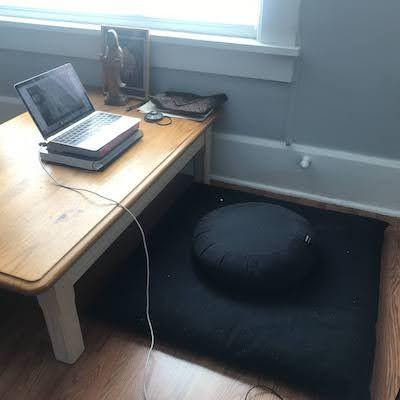
Below are a few suggestions to help you create an optimal retreat experience, realizing each of you has a unique home situation.
PREPARING FOR YOUR RETREAT AT HOME
- A quiet space - As much as possible, create a separate, quiet space away from family and distraction, even pets if they might distract you or other participants.
- Unplug - Plan to “unplug” from your phone, clocks, or any other electronic device unless using it to connect to our virtual retreat room. Turn off any notifications that might pop up on the device you're using to connect to the retreat.
- Free yourself up - Minimize or eliminate as many tasks and activities as you can. Normally we would be in a retreat setting to allow for an immersive experience. Retreating at home offers the benefit of being able to practice mindfulness skills in your regular environment while it offers the potential challenge of home distractions.
- Have a conversation ahead of time - We suggest that you prepare your household members ahead of time, letting them know you’ll be practicing silence during this time. If you're able to, maintaining silence or minimizing talk between practice periods (like we do at our in-person retreats) is a valuable contribution to the retreat experience.
- Explore integration and accept what happens - See an online retreat as an opportunity to integrate mindfulness practice and your daily life instead of as a way to “get away” – it helps to see this as a different type of experience from an in-person retreat at a retreat center.
- It won't be perfect - Resistance and wanting things to be other than they are can be a part of all contemplative practices. Please accept that the day will unfold in the way that it does and much is beyond your control. If things are busier or in some way not to your liking in the environment as you do the series of practices offered, please accept things as they are and know that there is benefit.
WE ASK THAT YOU:
- Sign in a little early to make sure you can connect.
- Turn cameras on once the retreat starts. This is not a requirement, but we've found that having cameras on best supports a rich and connected experience for all participants.
- Stay muted unless we are having a discussion.
- Maintain silence and focus as possible during practice times: refraining from speaking, reading, writing, or using other devices.
Following the guidelines supports a deep dive into practice for you and the entire community. Thank you.
About Our Multi-Day Silent Retreats

WHO COMES TO RETREATS?
All are welcome! We are honored to support each participant in their meditation practice regardless of their nationality, ethnicity, race, color, gender, gender identity, sexual identity, age, physical ability, political affiliation, or religion. Our retreats are suitable for beginning through experienced practitioners.
We are committed to offering support for any accessibility needs you have as we are able. Please contact us prior to registering for a course.
YOUR FIRST LONGER RETREAT?
Before sitting a multi-day retreat we recommend that you have teacher-led experience with mindfulness or related contemplative practices. Please contact us if you have questions about whether this retreat will be appropriate for you.
IS RETREAT RIGHT FOR YOU? Meditation retreats are not right for everyone. If you have a history of trauma or acute psychological issues, consider checking with a mental health professional to decide if intensive retreat practice would be supportive. If you have questions or concerns about whether a retreat is right for you, please contact us at office@mindfulnessnorthwest.com.
STRUCTURE AND PARTICIPATION
FOUR DAILY PRACTICE SESSIONS
- Mindfulness and compassion practices are offered in four blocks daily: early morning, morning, afternoon, and evening.
- Participants are expected to attend all sessions and follow the printed schedule you will receive on site as fully as possible. However, we are flexible and always willing to work with you on what your body and mind can reasonably do. Speak with the retreat teachers if you have concerns about following the complete schedule.
PRACTICING IN SILENCE
- After the initial orientation and introductions on the first evening, our residential retreats are held in silence.
- Participants are expected to follow guidelines around silence and participation:
- Not speaking to other participants including close friends or partners you are attending with.
- Not using technology of any form.
- Not reading books, magazines, flyers, or any reading materials.
- Reducing interpersonal contact through the eyes or other body language.
- Necessary communication with the retreat teachers can be done via a notes station or by taking them aside.
The intention of silent retreat is to settle deeply into your own experience and to not interact with others, allowing everyone space to have the retreat they need to have -- including you!
PERSONAL AND INTERPERSONAL SAFETY
Participants are expected to be sensitive and responsive to these guidelines and the needs of fellow participants as fully as possible.
- Do not take photos or make recordings of other participants or the teachers.
- Do not use alcohol or mind altering drugs of any kind.
- Emergency contact information to share with loved ones will be sent to you. Venue staff and Mindfulness Northwest instructors will make sure you receive incoming messages promptly while your phone is off. If you are expecting an urgent message please let your instructor know.
- Instructors are available at all times to offer support, including conversation if needed.
 WHAT TO BRING
WHAT TO BRING
- Warm clothes in layers (sweater, jacket, raingear, etc.). Outdoor walking meditation may be a component of this retreat unless the weather is too challenging.
- Shoes that are (1) fine walking in damp grass and (2) slip-on if possible. We take shoes on and off frequently. Slippers for the practice room can also be nice to have.
- Toiletries and overnight things including a towel.
- Bringing your own bedding (pillows, sheets, blankets or sleeping bag) is required at some of our venues. Please check your registration confirmation email for this information.
- A flashlight can be helpful but venues are generally reasonably well lit. Sometimes there is walking between buildings in the early morning and evening.
- A yoga mat if you have a favorite. We are able to bring mats to share.
- Meditation cushions / supplies – if you have a meditation cushion(s), a bench or other sitting gear, feel free to bring it. We are able to bring a limited supply of cushions. Note that there are plenty of chairs available.
- An extra blanket or two for the meditation hall – nice for body scans and resting.
AFTER THE RETREAT
Silent mindfulness retreats can be psychologically powerful. It's not unusual to experience significant shifts in your mood and energy levels right after a retreat. We recommend that you closely monitor your "mental hygiene" by avoiding overstimulating environments or influences directly after the retreat (i.e. parties, loud events, violent content, harsh substances or emotionally straining company). You can support the integration of your retreat experience with activities like journaling/drawing, mindful movement, spending time in nature or even a shower/soak in a bath. If you feel "off" several days after your retreat we encourage you to seek out support. Don't hesitate to reach out to us at office@mindfulnessnorthwest.com to connect with one of our teachers.
About Our Residential Trainings
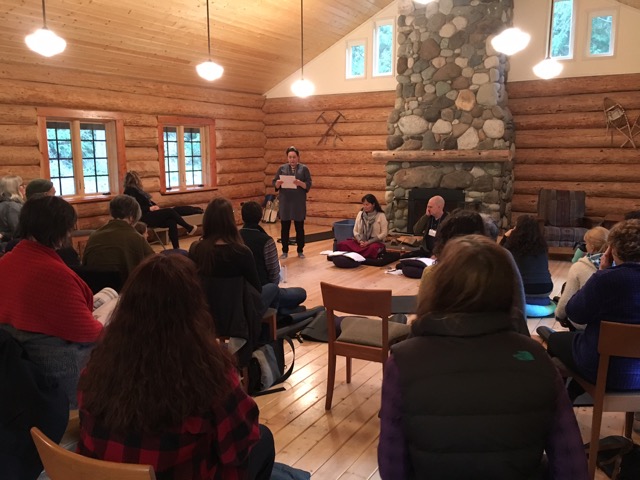
Residential Trainings are excellent if you cannot attend our 8-week classes or simply prefer the more intensive format and appreciate the way a Residential Training gets you away from your daily routine with space to focus.
We also offer silent teacher-led Residential Retreats. These are meditation retreats which consist primarily of silent meditation practice with some spoken guidance and brief talks from the teachers. Please see our Residential Silent Retreats section for more information.
STRUCTURE AND PARTICIPATION
A TRAINING DAY
Early morning practice starts our days before breakfast. Then 3-hour classroom sessions are offered morning and afternoon of most days. Evening sessions with additional resources and opportunities are offered on a few evenings as well. Participants are expected to attend all classroom sessions, but evening sessions are usually optional. You'll receive a printed schedule and guidance from the teachers about navigating these rich days of practice, study, and learning.
PERIODS OF SILENCE
Although our Residential Courses are interactive with talking, there are some periods of silence. Early morning and breakfast are usually held in silence, for example. Participants are expected to follow guidelines around silence and participation.
INTERPERSONAL SAFETY
Mindfulness and compassion training programs involve our personal stories and emotions. Instructors will work with the group to establish clear guidelines for safety. Participants are expected to be sensitive and responsive to these guidelines and the needs of fellow participants as fully as possible.
VENUE CHORES
To keep costs down, several of our venues ask that event participants wash dishes, sweep floors, clean bathrooms, and do other chores around the facility. We also do final clean up chores before leaving. We ask you to do chores as fully as you are able. If you have physical limitations we will help you find a suitable chore assignment.
REQUESTS OF YOU
- Arrive for the very beginning and stay to the end of the program.
- Follow the course schedule.
- Honor times of silence noted on the schedule: no reading, writing, or using devices during these times of silence.
- Please stay on campus unless invited to take an off-campus break by the instructors.
- Please do not use recreational drugs or intoxicants during any part of the training.
- Participants are asked to focus their energies and attention on the instruction and curriculum in order to get the most benefit from the week of training and in consideration of all participants.
- Do not take photos, video, or recordings of other participants or the instructors without their prior permission.
WHAT TO BRING
- Face masks – please check our COVID policy for our current guidelines around masking. While masks may not be required at your training, it's always a good idea to bring some.
- Warm clothes in layers (sweater, and jacket, etc) as we will be going in and out of doors as we move between buildings.
- Rain coat AND umbrella. This is the Pacific Northwest.
- Shoes that are (1) fine walking in damp grass and (2) slip-on if possible. We take shoes on and off frequently. Slippers for the practice room can also be nice to have.
- Toiletries and overnight things including a towel.
- Bringing your own bedding (pillows, sheets, blankets or sleeping bag) is required at most of our venues. Please check your registration confirmation email for this information.
- A flashlight can be helpful but venues are generally reasonably well lit. Sometimes there is walking between buildings in the early morning and evening.
- A yoga mat if you have a favorite. We are able to bring mats to share.
- Meditation cushions / supplies – if you have a meditation cushion(s), a bench or other sitting gear feel free to bring it. We are able to bring a limited supply of cushions. Note that there are plenty of chairs available.
- An extra blanket or two for the meditation hall – nice for body scans and resting.
- A notebook and pens like you would to any class or seminar.
WHAT’S NOT NEEDED
- Minimize electronic gadgets beyond what you need to take notes. We encourage you to consider reducing or disconnecting from phone, email, and text contact, but this is not required like it is in our silent residential retreats.
LODGING
Lodging assignments will be available on check-in at the course venue. You will have a room to yourself at most of our venues.
DIVERSITY & ACCESSIBILITY
We are honored to support each participant in their training regardless of their nationality, ethnicity, race, color, gender, gender identity, sexual identity, age, physical ability, political affiliation, or religion.
We are committed to offering support for any accessibility needs you have as we are able. Please contact us with any questions or requests related to accessibility prior to registering for a course.
AUDIO/VIDEO RECORDING TAKEN BY MINDFULNESS NORTHWEST
Audio/video recordings of our instructors may occasionally be created for certification and training purposes during these programs. These recordings will include only our instructors in the photo frame (though they may pick up student voices at some points in the recording) and are for internal use only.
We may also request your consent to take photos or videos for promotional purposes. Your image will not be captured or used without your consent.
About Our Online Trainings

Below are a few suggestions to help you create an optimal experience at your online mindfulness-based training, realizing each of you has a unique home situation.
PREPARING FOR YOUR TRAINING AT HOME
- A quiet space - As much as possible, create a separate, quiet space away from family and distraction, even pets if they might distract you or other participants.
- Free yourself up - Minimize or eliminate as many tasks and activities as you can. Normally we would be in a retreat-type setting to allow for an immersive experience. Doing mindfulness-based training at home offers the benefit of being able to practice mindfulness skills in your regular environment while it offers the potential challenge of home distractions.
- Have a conversation beforehand - We suggest that you prepare your household members beforehand, letting them know you’ll be in a focussed training with periods of silent meditation. Ask for support in maintaining a more settled space.
- Explore integration and accept what happens - See online training while at home as an opportunity to integrate mindfulness practice and your daily life instead of a way to “get away” – it helps to see this as a different type of experience from in-person studies at a retreat center.
- It won't be perfect - Resistance and wanting things to be other than they are can be a part of all learning environment. Please accept that the day will unfold in the way that it does and much is beyond your control. If things are busier or in some way not to your liking in the environment as you do the series of practices offered, please accept things as they are and know that there is benefit.
WE ASK THAT YOU:
- Turn cameras on during the training. This is not a requirement, but we've found that having cameras on best supports a rich and connected experience for all participants.
- Stay muted unless we are having a discussion.
- Be ready to participate as fully as you can.
Following the guidelines supports a deep dive into practice for you and the entire community. Thank you.
MBSR TEACHER TRAINING & CERTIFICATION
MBSR Teacher Training (MBSR-TT) is an immersive, apprentice-style training in how to teach MBSR with skill and confidence. It features hands-on, in-classroom training with a high faculty-to-student ratio. Personalized feedback and warm support are the hallmarks of this unique certification program.
The first year consists of practicum-based training alongside senior teachers in a small cohort. In later stages, MBSR-TT becomes a mentorship-based self-paced program which can be completed in a second year or at your own pace over a longer period.
In-person practicums are available to students in the Puget Sound, Washington and Atlanta, Georgia regions. Online practicums make this training accessible worldwide.
This advanced training is designed for those who are already comfortable leading meditation, yoga, or related contemplative disciplines. IF you feel like you need more fundamental training in how to teach mindfulness please see our Mindfulness Teacher Training Program (MTTP), above.
To fulfill the prerequisites for application to MBSR-TT, you have:
- Taken the MBSR course.
- Completed at least one silent, teacher-led meditation retreat of 5 days or longer.
- Established a consistent personal meditation practice.
Feel free to contact us before applying if you are unsure whether you meet the above prerequisites.
STRUCTURE OF THE TRAINING
MBSR-TT unfolds over four phases. You work through the first two phases with a small cohort in an intensive, practicum-based setting. The last two phases are more flexible and mentorship-based. Note that this program uses an academic year.
Phase I: Winter & Spring
- You will be embedded in two MBSR classes organized by Mindfulness Northwest or the Mindfulness Center of Atlanta.
- In the first class you will be observing the Senior Teacher and participating right along with the students.
- In the second class you will have progressively more teaching responsibility. Other cohort members may also be in your class.
- You will collect short video recordings of your teaching to review.
- Process your experience in a weekly live debrief after every MBSR class.
- Learn together in weekly Zoom meetings with the entire cohort.
Phase II: Fall
- Cohort support continues and the flexible nature of the program kicks in.
- Many trainees are ready to teach solo or co-teach with another trainee and will organize their own class for Phase II.
- If it’s too soon to teach independently, the support of co-teaching with one of our Senior Teachers may be offered at our discretion.
- Continue collecting video of your teaching for review.
- Weekly Zoom meetings with the entire cohort continue.
- Write reflections on each class session taught and receive personalized feedback from a Senior Teacher.
Phase III: Your own timing
Typically during the second year of the program, but flexible.
- During Phase III you will organize and teach three (3) MBSR classes.
- Receive nine hours of one–on-one video conference mentorship support as you fully take the teacher’s seat.
- You may co-teach with another trainee or with a teacher outside the program. (Non-Mindfulness Northwest teachers require pre-approval by the Program Director.) At least one of your Phase III courses should be taught solo.
Phase IV: Certification
Typically during the third year of the program, but flexible.
- Submit a teaching portfolio (including video of teaching and audio recordings) demonstrating that you’re ready to teach MBSR independently.
- Receive a portfolio review with a Senior Teacher.
- Additional training and support may be recommended.
MORE ABOUT HEALTHCARE PROFESSIONAL PROGRAMS
Since 2012, Mindfulness Northwest has been providing training in mindfulness to healthcare professionals and staff. Our signature 5-week class, Mindfulness for Healthcare Professionals, has been offered over 25 times to professionals at UW Medical Center, Kaiser Permanente, PeaceHealth, The Everett Clinic, Evergreen Medical, Skagit Valley Medical, Washington Physicians Health Program, and others.
Please contact us for more information.
EVIDENCE-BASED TRAINING
A substantial and growing body of peer-reviewed research confirms that when organizations provide mindfulness training to employees, both profit.
Organizations enjoy these benefits:
- Greater employee engagement
- Higher morale
- Improved productivity
- Reduced stress and burnout
- Lower turnover
And their employees report:
- Stronger connections to the organization and other employees
- Greater job satisfaction
- Improved focus and creativity
- Gratitude for the benefits of this training on their non-work lives
The research also identifies these general health and wellness benefits:
- Increased stress resilience and reduced anxiety
- Improved immune system function
- Improved response to chronic pain
- Reduced symptoms and risk of many chronic diseases (high blood pressure, heart disease, asthma, GI distress, skin disorders)
- And many others
Research citations available on request
Ready to bring mindfulness to your team? Contact us.
MINDFULNESS FOR HEALTHCARE PROFESSIONALS
Format: Five 2.5 hour classes, one extended 6-hour session, and daily home practice.
Our Mindfulness for Healthcare Professionals (MHP) training includes all of the core elements of the well-studied Mindfulness-Based Stress Reduction curriculum (Kabat-Zinn 1990, 1982, 2002) in a briefer and more concentrated format adapted for healthcare, and is equivalent in scale and content to several mindfulness training interventions which have proven effective (Fourtney et al. 2013, Schoroeder et al. 2015).
Preliminary data we’ve collected suggests our course results in a decrease of symptoms of burnout, an increase in mindfulness, and a decrease in perceived stress. Specifically, the data show:
- an increase in mindfulness of 11%;
- a decrease in perceived stress of 21%;
- a reduction in depersonalization of 15%:
- a decrease in emotional exhaustion 6%; and
- an increased sense of efficacy 8%.
Mindfulness for Healthcare Professionals has been offered since 2012 at the University of Washington Medical School, The Everett Clinic, Evergreen Medical Center, Skagit Valley Regional Medical Center, PeaceHealth St. Joseph’s Medical Center, Kaiser Permanente, Seattle Cancer Care Center, Providence Health, and through the Washington Physician’s Health Program.
The course has been accredited for CME (Continuing Medical Education). Our live online offering through PeaceHealth St. Joseph is designated for a maximum of 16.25 AMA PRA Category 1 Credits™.
Interested in joining an ongoing MHP training or bringing a session to your medical center? Contact us.





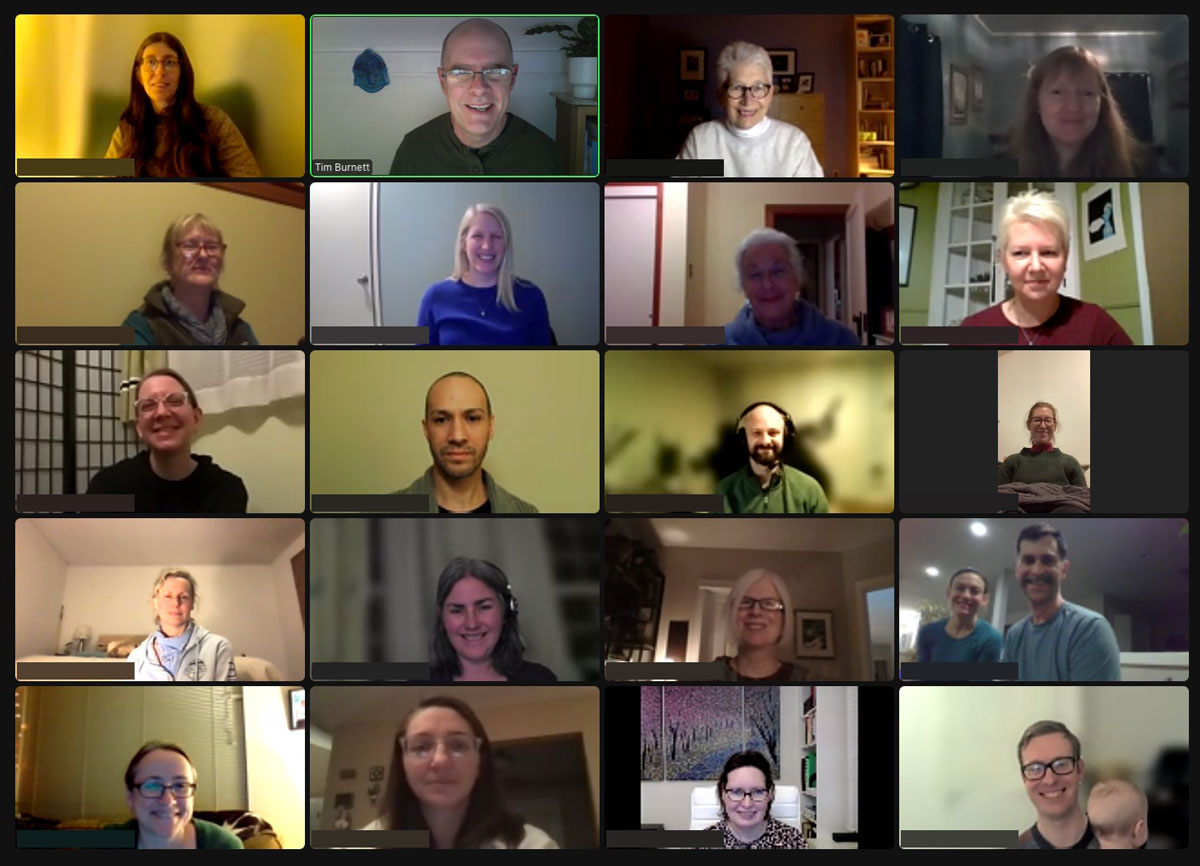





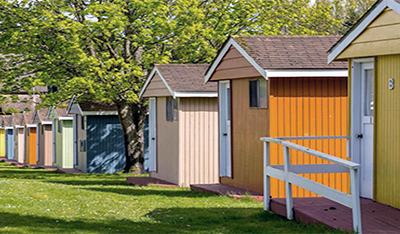
 WHAT TO BRING
WHAT TO BRING